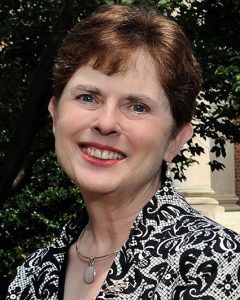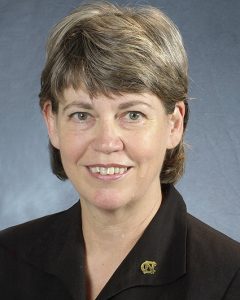Mission and History
Our Mission
The School of Information and Library Science (SILS):
- Educates innovative and responsible thinkers who will lead the information professions.
- Discovers principles and impacts of information.
- Creates systems, techniques, and policies to advance information processes and services.
- Advances information creation, access, use, management, and stewardship to improve the quality of life for diverse local, national, and global communities.
Our History
Library education began at the University of North Carolina at Chapel Hill in 1904 when Dr. Louis Round Wilson began offering summer school classes. Almost three decades later, the library science degree program began.
In 1929, just as the new library building was finished on UNC’s campus, Wilson wrote an article on the “Library in Modern Education,” saying: “As part of the program of social welfare now being worked out at Chapel Hill, a library school is needed, where librarians, like lawyers and doctors and teachers, may secure expert professional training. With its magnificent new building as a laboratory for the school, such an institution would not only be in harmony with the program on which the University has embarked, it would offer opportunity through the sending out of trained librarians for the South to tap the vast reservoir of human knowledge.”
The UNC School of Library Science opened at Chapel Hill in Fall 1931 with a class of 37 students and five faculty members, including Dr. Wilson. The Carnegie Corporation provided a $100,000 grant to enable the School to operate for three years and make permanent its conditional accreditation from the American Library Association (ALA).
In 1987, recognizing the growing importance of the study of information use and management, the faculty voted to revise the curriculum and change the School’s name to the UNC School of Information and Library Science.
Deans & Directors
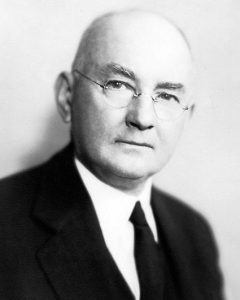 Born Dec. 27, 1876, Louis Round Wilson became a transformational leader in academic librarianship and library education.
Born Dec. 27, 1876, Louis Round Wilson became a transformational leader in academic librarianship and library education.
Wilson was appointed University Librarian at the University of North Carolina at Chapel Hill in 1901. In addition to his role with the library, at various times during his Carolina tenure, Wilson served as director of university extension, founded and directed UNC Press, and edited the Alumni Review.
Wilson began offering summer school classes in library science in 1904. Following years of curriculum expansion and vigorous advocacy by Wilson, the University established the School of Library Science in 1931 with Wilson as its first director.
In 1932, Wilson resigned his posts with Carolina and accepted an invitation to become dean of the Graduate Library School of the University of Chicago. During the decade of Wilson’s leadership, the school became a hub of intellectual activity as Wilson, his faculty, and his doctoral students researched and authored influential works examining multiple facets of librarianship.
Wilson’s publication record continued after his retirement to Chapel Hill in 1942. He undertook the editorship of the 18-volume Sesquicentennial History of the University of North Carolina. He co-authored another landmark work,The University Library, and wrote three additional volumes of UNC history.
Wilson taught part-time at the UNC School of Library Science until 1959 and served as an adviser to University President William C. Friday until 1969. He conducted numerous University surveys, as well as a survey of libraries of the southeast with Marian A. Milczewski. He marked the centenary of his birth with publication of a new book, Louis Round Wilson’s Historical Sketches.
One of the founders of the North Carolina Library Association (1904), Wilson served as the first chairman of the North Carolina Library Commission (1909-1916) and worked diligently with the Southern Association of Colleges and Schools in creating library standards. He was a founder and subsequent president of the Southeastern Library Association.
Active in the American Library Association (ALA), Wilson accepted membership on the Board of Education for Librarianship during the organization’s second year and served as its chair from 1925 to 1932. Wilson led ALA as its president from 1935 to 1936 and was one of the ALA officials most interested in federal support for libraries. In 1951, ALA presented Wilson its highest award, honorary membership, and in his centennial year, awarded him with the Melvil Dewey Medal.
Wilson died Dec. 10, 1979, at the age of 102. (Adapted from the Spring 1980 edition of News from Chapel Hill.)
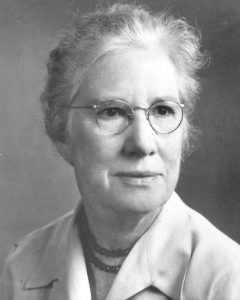 Susan Grey Akers was one of the original faculty members to join the UNC School of Library Science. When the School’s founder, Louis Round Wilson, departed in 1932 just a year after the School’s establishment, Akers became acting director. She was also promoted to full professor, the first woman at the University of North Carolina at Chapel Hill to attain that status.
Susan Grey Akers was one of the original faculty members to join the UNC School of Library Science. When the School’s founder, Louis Round Wilson, departed in 1932 just a year after the School’s establishment, Akers became acting director. She was also promoted to full professor, the first woman at the University of North Carolina at Chapel Hill to attain that status.
Carolina had appointed its first female faculty member of any rank just five years earlier, and the vast majority of faculty and students on campus were men. Akers successfully navigated the gender politics of her time while managing curriculum development, accreditation reviews, and other challenges facing the new school.
By 1935, her performance had secured her role as director, and in 1942, she was named dean. The title represented important recognition for both herself and the School.
Born in Richmond, Ky., in 1899, Akers earned an A.B. from the University of Kentucky with the intention to teach, but soon changed course to pursue librarianship. She advanced her career and education while working at university libraries across the country. Her reputation as a cataloguing expert prompted the American Library Association (ALA) to request that she write a book on the subject. Initially published in 1927, Simple Library Cataloguing would extend through seven editions and earn Akers the Margaret Mann Citation in Cataloguing and Classification from ALA.
The same year her book debuted, Akers received a fellowship to attend the University of Chicago, where she became the second woman and fourth person in the U.S. to earn a PhD in library science.
Akers served as dean of the library science school at Carolina until her retirement in 1954, though she did take a leave of absence in 1950 to become a civilian member of the Civil, Information, and Education Section of the U.S. Army. She went to Tokyo for several months, training teachers who would offer courses for school librarians at universities in Japan. The Japan Library Association presented her an award for distinguished service in 1982.
Akers also spent nine months as a visiting lecturer at the University of Tehran through an international exchange program arranged by the U.S. government.
Akers remained involved with UNC School of Library Science until her death in 1984. Alumni of the School established a scholarship to recognize Akers at the time of her retirement, and the fund continues to provide support for students. In 2018, the University identified her as one of 19 Bridge Builders and named an undergraduate scholarship in her honor.
(Sources: “‘This Was a Man’s University’: The Career of Susan Grey Akers at the University of North Carolina’s School of Library Science,” Lawton, Kelley A., 1993. “The Answer was Yes,” Akers, Susan Grey, 1966.)
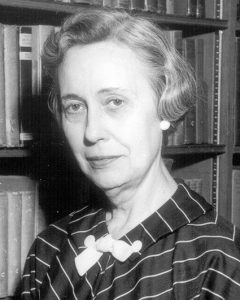 Lucile Kelling Henderson joined the UNC School of Library Science faculty in 1932, and was dean from 1954 until her retirement in 1960. She supervised the School’s transition from a fifth-year bachelor of science library degree program to a master of science program.
Lucile Kelling Henderson joined the UNC School of Library Science faculty in 1932, and was dean from 1954 until her retirement in 1960. She supervised the School’s transition from a fifth-year bachelor of science library degree program to a master of science program.
During her deanship, the Epsilon chapter of Beta Phi Mu, the national honor society, was chartered at Carolina. Henderson was considered ahead of her time by many, advocating the establishment of a doctoral program in library and information science, an advancement that did not occur until 1977.
“She was one of those very dedicated and highly capable people who did so much to give the University at Chapel Hill its great reputation,” said University President William C. Friday. “What she did through the school as its leader had enormous impact on libraries throughout the state and region.”
Henderson earned her bachelor of arts degree from Whitman College in 1917 and her bachelor of library science degree from New York State Library School in 1921. Before coming to Carolina, the Minnesota native taught at the University of Southern California, Mills College, Columbia University, and New York State Teachers College. Henderson was the author of a dozen books and monographs, including Bernard Shaw Around the World, and joint author of Index Verborum Juvenalis. She also wrote numerous articles in professional magazines and many short stories.
Henderson died July 29, 1990, at the age of 95. The Lucile Kelling Henderson Lecture Series was established in honor. (Adapted from the Fall 1990 edition of News from Chapel Hill.)
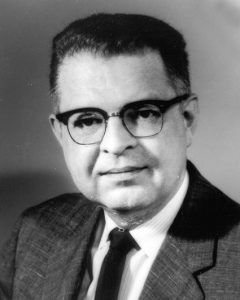 Born in Springwater, N.Y., April 1, 1918, Carlyle Frarey earned a B.A. from Oberlin College in 1939. After serving in World War II in the U.S. Army Air Force, he entered the School of Library Service at Columbia University, from which he received a B.S. degree in 1947 and an M.S. in 1952.
Born in Springwater, N.Y., April 1, 1918, Carlyle Frarey earned a B.A. from Oberlin College in 1939. After serving in World War II in the U.S. Army Air Force, he entered the School of Library Service at Columbia University, from which he received a B.S. degree in 1947 and an M.S. in 1952.
In 1952, he was appointed assistant librarian at Duke University. In 1954, he became an associate professor at the UNC School of Library Science. For four years, he served as acting dean of the School, overseeing a curriculum revision and a reaccreditation review by the American Library Association.
In 1964, Frarey returned to Columbia University as senior lecturer in the School of Library Service and as assistant to the dean. He was a member of Phi Beta Kappa and Beta Phi Mu, the national library science honor society.
Frarey was an active member of the American Library Association (ALA), the Association of American Library Schools, the New York State Library Association, the New York Technical Services Librarians, and the Archons of Colophon.
He was a frequent contributor to library periodicals and served as managing editor of both the Journal of Cataloging and Classification, 1953-56, and Library Resources and Technical Services, 1957 to 1960. From 1957 to 1969 he was a member of the Dewey Decimal Classification Editorial Policy Committee, Forest Press, Inc., Lake Placid Club Education Foundation, serving as its chairman from 1965 to 1969.
He died Mar. 13, 1976, at the age of 58.
(Adapted from the Fall 1976 edition of News from Chapel Hill.)
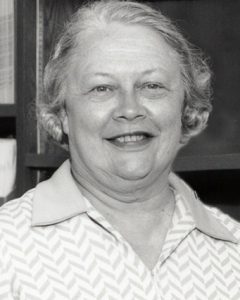 A native of Middletown, N.Y., and a graduate of Douglass College, Margaret Kalp earned her M.A. in library science from the University of Michigan. She also studied at Rutgers University and the University of Chicago.
A native of Middletown, N.Y., and a graduate of Douglass College, Margaret Kalp earned her M.A. in library science from the University of Michigan. She also studied at Rutgers University and the University of Chicago.
Before joining the UNC School of Library Science faculty, she taught at the Hampton Institute Library School and at George Peabody College.
Kalp served the North Carolina Library Association as president, the American Library Association as a member of its council, and the Association of American Library Schools and the American Association of School Librarians as a board member.
She remained at the UNC School of Library Science for 30 years, serving as a professor, full-time administrator, and part-time administrator. Students consistently gave her high marks for her teaching ability and frequently consulted her about their career plans.
She died April 26, 1978, at the age of 63. The Margaret Ellen Kalp Memorial Fellowship was established in her honor.
“Margaret Kalp served the University faithfully and well,” UNC President William Friday said shortly after her passing. “Those of us privileged to be her friend will greatly miss this gracious lady.”
Provost J. Charles Morrow said Kalp “served with great effectiveness as a professor and administrator. The University and her colleagues are much in her debt for her leadership, dedication, and able services.”
(Adapted from the Summer 1978 edition of News from Chapel Hill.)
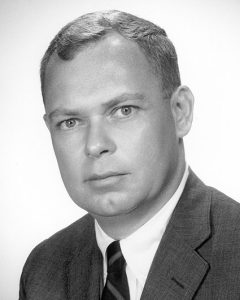 Walter A. Sedelow, Jr., earned his PhD from Harvard University in 1957. He served as dean just before the UNC School of Library Science moved to Manning Hall in 1970.
Walter A. Sedelow, Jr., earned his PhD from Harvard University in 1957. He served as dean just before the UNC School of Library Science moved to Manning Hall in 1970.
During his three-year tenure, he invited several notable lecturers to speak at the School and adjusted the curriculum to reflect an increasing emphasis on computer-related assistance for the librarian. He resigned in July 1970 to accept a position at the University of Kansas at Lawrence.
He and his wife, Sally Yeates Sedelow, PhD, pioneered methods of automated analysis of language and discourse, stylistic analysis, lexical databases, and computer applications in the humanities.
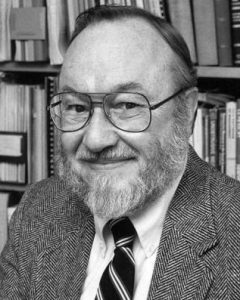 Raymond L. Carpenter, Jr., was at various times a student, professor, and dean of the UNC School of Library Science.
Raymond L. Carpenter, Jr., was at various times a student, professor, and dean of the UNC School of Library Science.
Born and raised in Watertown, N.Y., he joined the U.S. Army upon completing his high school education in 1944. Following basic training, he began training in the Japanese language at Rutgers University and the University of Minnesota.
After an honorable discharge from the Army, Carpenter earned his B.A. in sociology from St. Lawrence University in 1949. He then came to the University of North Carolina at Chapel Hill and earned an M.A. in sociology in 1951 and an M.S. in library science in 1959, all while working in several of the University libraries.
Carpenter became an instructor in the UNC School of Library Science in 1959. He went on to earn a PhD in sociology and was promoted to Associate Professor of Library Science in 1968. He served as acting dean of the School from 1970 to 1972, and was named a full professor in 1981.
Carpenter’s passion for teaching and research led to many publications and brought him great joy for over 40 years at Carolina. His prodigious research work included a pioneering national study of gender differences in salary and status and a national and state-level analysis of college library operations in terms of the American Library Association’s standards (four-year and two-year). These studies and other published work on library economics and demographics, language translation patterns and international librarianship, and international information transfer reflected his background in the social sciences.
He maintained a research association with the Institute for Research in Social Science, received a Senior Fulbright-Hays Research Fellowship, and served as a delegate for the International Federation of Library Associations.
Carpenter died April 25, 2016, at the age of 89. (Sources: 1992 edition of News from Chapel Hill and May 2016 obituary notice in the News & Observer.)
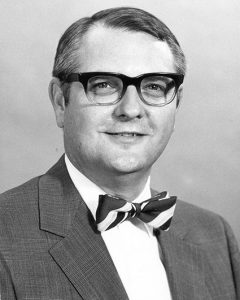 A major figure in 20th century American librarianship, Edward G. Holley served his chosen profession as an administrator, educator, and historian.
A major figure in 20th century American librarianship, Edward G. Holley served his chosen profession as an administrator, educator, and historian.
Holley was born in 1927 in Pulaski, Tenn. He earned a B.A. in English in 1949 from David Lipscomb College in Nashville and an M.A. in library science in 1951 from the George Peabody College for Teachers, also in Nashville. In 1961, he completed a PhD in library science at the University of Illinois at Urbana-Champaign.
Holley began his professional academic career at the University of Houston, serving as director of libraries from 1962-1971. While at Houston, he oversaw a major addition to the library and significant enrichment of the collection.
He came to Chapel Hill in 1972 to assume the position of dean and professor at the UNC School of Library Science. During his tenure as dean, he recruited stellar faculty, established a doctoral program, and expanded the master’s program to two years, providing a core curriculum known famously to students as “The Block.” As a professor and advisor, he was an inspiration to his students and directed a number of significant doctoral dissertations.
In 1975, he established a ground-breaking partnership with the Environmental Protection Agency (EPA). The School contracts with the federal agency to operate the library at its Research Triangle Park (RTP) location. As part of the agreement, several master’s students have the opportunity to intern at the library each year, receiving a stipend, full-tuition support, and invaluable professional experience. The partnership has endured for decades and hundreds of graduate students have completed the internship, with many becoming leaders in the library and information science field and beyond.
An eminent historian, Holley produced over 100 books, articles, and essays on topics as diverse as the history of library education, copyright, library administration, and the place of personal morality in public life. He served on countless high-level committees, worked for accreditation standards, defended the MSLS, testified before Congressional committees, and acted as a library consultant.
He served as president of the American Library Association (ALA) from 1974-75 and was largely responsible for establishing a federated system for the organization. He received nearly every major award his profession bestowed, notable among them the ALA Scarecrow Press Award for his published dissertation on American bibliographer Charles Evans (1964), the ALA Melvil Dewey Award (1983), the ALA Joseph Lippincott Award (1987), the Association of College and Research Libraries (ACRL) Academic/Research Librarian of the Year Award (1988), and the Beta Phi Mu Award (1992). In 1994, he was honored with a Festschrift, For the Good of the Order: Essays in Honor of Edward G. Holley, the title bearing witness to his tireless professional devotion.
After stepping down from his role as dean of the UNC School of Library Science in 1989, he became the William Rand Kenan, Jr. Professor at Carolina, a title he held until his retirement in 1995. He died Feb. 18, 2010, in Durham, N.C.
“Ed was not only a distinguished professional, but also a caring and compassionate individual,” said Barbara B. Moran, professor and dean of the School at the time of Holley’s death in 2010. “He was one of the most unselfish people I ever met and was always concerned with the good of others. He was a wonderful mentor and someone who cared deeply about the students, the faculty, and the School. Using his own term, he always put the ‘good of the order’ before his individual needs. He was truly a remarkable person and one who will be missed deeply by those who had the opportunity to know him.”
The Edward G. Holley Student Research Fund at the School honors his legacy and deans of the School occasionally present the Edward G. Holley for the Good of the Order Award as special recognition for faculty and staff members who have given selflessly for the good of School.
(Sources: “Interview with Edward G. Holley” by Tommy Nixon, North Carolina Libraries, 56(2), Summer 1998, p.65-70 and 2010 obituary notice in the News and Observer.)
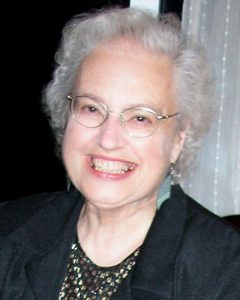 Under Evelyn Daniel’s leadership, the School significantly broadened its curriculum and research, advancements that were reflected in the decision to change its name from the UNC School of Library Science to the UNC School of Information and Library Science (SILS).
Under Evelyn Daniel’s leadership, the School significantly broadened its curriculum and research, advancements that were reflected in the decision to change its name from the UNC School of Library Science to the UNC School of Information and Library Science (SILS).
Daniel was a notable scholar whose research provided significant models for faculty governance and information leadership. Prior to her arrival in Chapel Hill, she had served as dean of the School of Information Studies at Syracuse University.
During her five-year term as dean at Carolina, the School appointed six new faculty members, grew enrollment from 120 students to over 170 students, and increased and diversified its research funding. The School also introduced a master’s track in information science in 1988, and post-master’s certificate of advanced study that same year.
Daniel oversaw significant renovations to Manning Hall’s facilities to accommodate the School’s growth and increasing reliance on technology. The auditorium was converted to an electronic master classroom with new sound and visual systems. Faculty and staff were provided with individual computer workstations, and in 1987, the School began offering two-way video teleclasses.
Daniel reorganized the administrative offices, adding two new professional positions and upgrading four staff positions. She worked with the faculty to develop a bylaws, policy, and procedures manual, codifying the School’s internal governance and standard operating procedures. She also initiated a faculty-led strategic planning process.
After her tenure as dean concluded, Daniel became an active member of the faculty and even postponed her retirement to serve as Associate Dean for Academic Affairs for two years. She officially retired in 2010, but continued to teach as an adjunct.
“Evelyn has been the heart of the School for the past 25 years,” said Gary Marchionini, Dean of SILS at the time of Daniel’s retirement. “She is a remarkable scholar, passionate about educating our students, always engaging with faculty on numerous scholarly topics and devoting many hours to the School, going over and above any expectation.”
A passionate learner and fierce champion for libraries, Daniel served on the Library Boards of the Chapel Hill Public Library and the Orange County Public Libraries.
For her exceptional ability as an educator, she received the SILS Award for Teaching Excellence in 1999 and again in 2009. She was the recipient of the Association for Library and Information Science Education (ALISE) Service Award in 2000 and was given the Edward G. Holley for the Good of the Order Award during the 2010 SILS spring commencement ceremony.
Daniel continued teaching and inspiring students and her colleagues until her passing on November 24, 2019.
(Sources: Fall 1989 edition of News from Chapel Hill, 2019 obituary notice in the News & Observer, Fall 2020 school newsletter)
Barbara Burns Moran joined the faculty in 1981 and taught primarily in the areas of management and academic librarianship. She served as dean of the School from 1990 to 1998, and again as interim dean in 2009. During her initial appointment as dean, she enhanced technical resources, added an undergraduate minor program, and increased graduate enrollment by 32 percent.
She expanded the international involvement of the School and began the very successful London and Prague summer seminars, a legacy that the School is working to continue and expand through the Barbara B. Moran Fund for Global Programs.
After her deanship concluded, Moran again became an active member of the faculty and received the School’s Award for Teaching Excellence in 2003. She was named the inaugural Louis Round Wilson Distinguished Professor at the UNC School of Information and Library Science (SILS) in 2010.
Moran graduated from Mount Holyoke College in South Hadley, Mass., and then earned an MLS from Emory University and a PhD from the State University of New York at Buffalo.
Her research focused on various aspects of management including leadership, organizational structures, and career progression patterns. She authored more than 85 journal articles and book chapters and co-authored Library and Information Center Management, a textbook used by library science programs worldwide.
Barbara B. Moran was appointed interim dean of UNC School of Information and Library Science (SILS) on May 1, 2009.
“We are fortunate to have someone with Dr. Moran’s breadth of academic and leadership experience guide the school while we conduct a search for Dean José-Marie Griffiths’ replacement,” said University Executive Vice Chancellor and Provost Bernadette Gray-Little. “She is an accomplished scholar and teacher and has provided service to the University on many levels through the years. Dr. Moran also is widely respected for her involvement at the state, regional and national levels in the field of information and library science.”
She retired in 2017 but stayed in close contact with the School.
Moran died on May 2, 2020.
“She truly cared about every single student and colleague. I never ceased to be awed by her memory of alumni names and accomplishments,” said SILS Dean Gary Marchionini, who was hired by Moran. “Barbara’s kindness and remarkable smile warmed every meeting and uplifted us even in difficult and contentious decisions. SILS is great because Barbara was at the helm, whether dean or senior professor – leading, inspiring, and nurturing each of us as individuals and as a collective greater than the sum of its parts.”
(Sources: Fall 1997 and Fall 2020 editions of the school’s newsletter).
During Joanne Gard Marshall’s tenure as dean, the UNC School of Information and Library Science (SILS) added an undergraduate degree in information science and initiated dual master’s degree programs with Duke’s medical school and Carolina’s schools of business, public health, nursing, government, and art history. The School also launched new international programs to engage scholars in the Czech Republic, Denmark, Singapore, and Slovenia.
Research funding increased four-fold between 1999 and 2003, six new faculty positions were added, and the doctoral program more than doubled in enrollment. In 2000, U.S. News & World Report ranked the school first in the nation, tied with the University of Illinois at Urbana Champaign. That same year, Marshall was featured on the cover of Library Journal (Nov. 15, 2000) in connection with her article on how librarians can determine their worth and communicate their value.
“Under Dr. Marshall’s leadership, the School of Information and Library Science initiated important educational programs that serve the state, and SILS gained a four-fold increase in research funding,” said Provost Robert Shelton when Marshall announced that she was stepping down from the dean’s post. “Her contributions have helped the School achieve prominence nationally and internationally. Though her focus will shift, her dedication to the School remains unswerving.”
Marshall’s areas of research interest include the evaluation of library and information services, workforce issues, evidence-based practice, and health information services. Her passions include linking research to practice, yoga, and gardening.
In addition to a PhD in Public Health, she holds a Master of Health Science from McMaster University and a Master of Library Science from McGill University. In 2005 she received an honorary doctorate from McGill University in recognition of her contributions to improving research and practice in health library and information services.
She served as president of the Medical Library Association (MLA) from 2004-05 and has received a number of awards from MLA, including a doctoral fellowship, the Eliot Prize for the most significant research in medical librarianship for 1982 and 1992, and the Donald Lindberg Fellowship in 2010.
She received the Award of Outstanding Achievement from the Canadian Health Libraries Association in 1992 as well as several awards from the Special Libraries Association (SLA) including the H.W. Wilson Award in 1997, the John Cotton Dana Award 1998, and the Factiva National Leadership Award in 2004. She is a fellow of both the Medical Library Association and the Special Libraries Association.
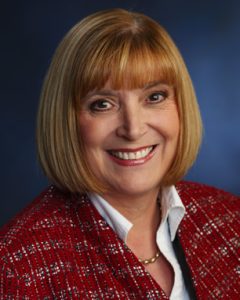 José-Marie Griffiths was officially named dean of the UNC School of Information and Library Science (SILS) in August 2004 after an extensive search. Griffiths holds a bachelor’s degree in physics and a PhD in information science from University College London.
José-Marie Griffiths was officially named dean of the UNC School of Information and Library Science (SILS) in August 2004 after an extensive search. Griffiths holds a bachelor’s degree in physics and a PhD in information science from University College London.
She came to Carolina from the University of Pittsburgh, where she had been the Doreen E. Boyce Chair and Professor in the School of Information, Director of the Sara Fine Institute for Interpersonal Behavior and Technology, and an associate of the Learning Research and Development Center.
Griffiths’ research spans information and library science, technology, and leadership. She has done groundbreaking work in return on investment analysis of information systems and libraries, the influences of the digital revolution on the conduct of research, the implications for providing resources and support to research efforts, and best practices for information technology in higher education, among other subjects.
She has been awarded appointments from two U.S. Presidents, including posts on the National Science Board, the U.S. President’s Information Technology Advisory Committee, and the U.S. National Commission on Libraries and Information. She was elected Fellow of the American Association for the Advancement of Science and received the Award of Merit and Research Award from the American Society for Information Science and Technology (ASIS&T).
(Adapted from the Fall 2004 edition of the SILS newsletter and the Archives & Museum Informatics 2007 conference website.)
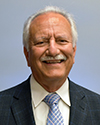 Gary Marchionini was appointed dean of the UNC School of Information and Library Science (SILS) effective April 1, 2010.
Gary Marchionini was appointed dean of the UNC School of Information and Library Science (SILS) effective April 1, 2010.
“Gary Marchionini is a distinguished faculty member whose extraordinary academic background is internationally renowned,” said Chancellor Holden Thorp. “He is the ideal person to lead our School of Information and Library Science into this new decade when information and technology have never been more important in our society.”
Marchionini holds a master’s degree in secondary mathematics education and a PhD in curriculum development from Wayne State University. He joined the SILS faculty as the Cary C. Boshamer Professor in 1998. He was previously a professor in the College of Library and Information Services at the University of Maryland and a member of the Human-Computer Interaction Laboratory.
A recognized expert in human-information interaction, interface design and testing, and digital libraries, he has published over 200 articles, chapters and reports in a variety of books and journals.
He has been awarded research funding from the National Science Foundation, Library of Congress, Bureau of Labor Statistics, NASA, Microsoft, and IBM among others. In 2007, he used a Google Research Award to develop the Information in Life Video Series, which established what would become the UNC-Chapel Hill YouTube channel.
Elected to the iSchools Board of Directors in 2018, Marchionini is a former editor of the ACM Transaction on Information Systems and past president of the American Society for Information Science and Technology (ASIS&T).
His professional contributions have been recognized by the Library and Information Technology Association (LITA) Kilgour Award for Research (2000) and the ASIS&T Award of Merit (2011), the association’s highest honor. In addition, he received the 2010 UNC Faculty Award for Excellence in Doctoral Mentoring and the 2009 Award for Teaching Excellence from SILS.
His current interests and projects are related to interfaces that support information seeking and information retrieval, and issues arising from data science and ubiquitous information.

